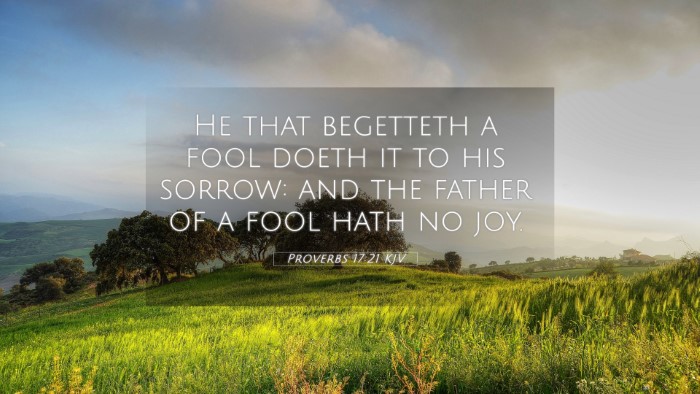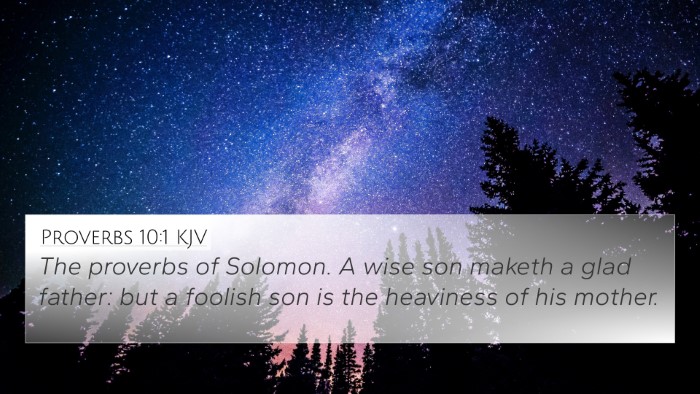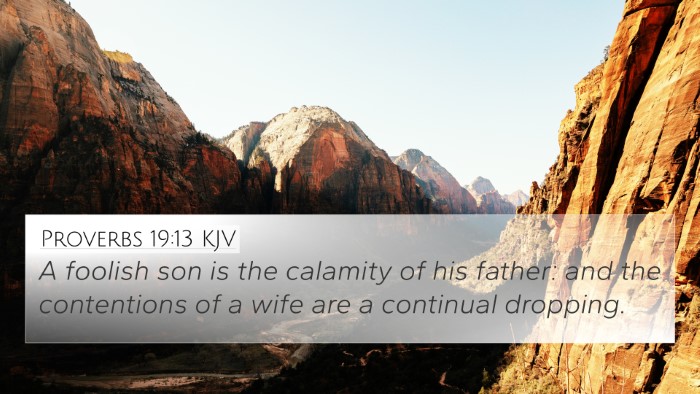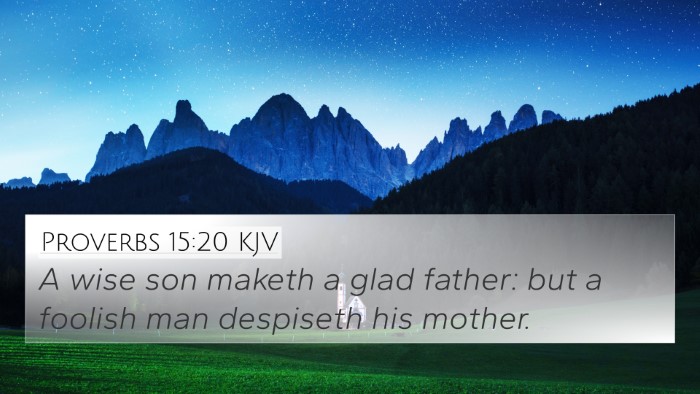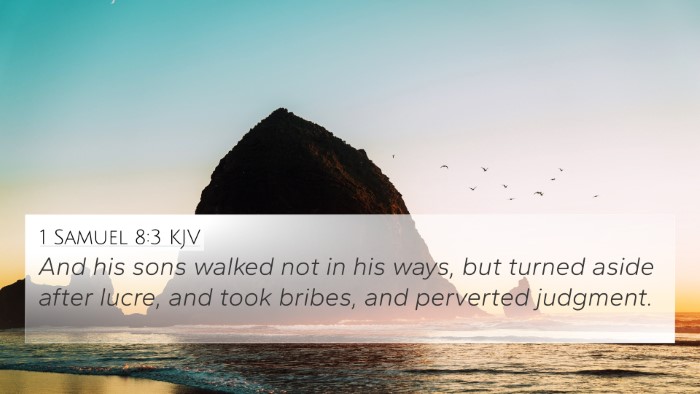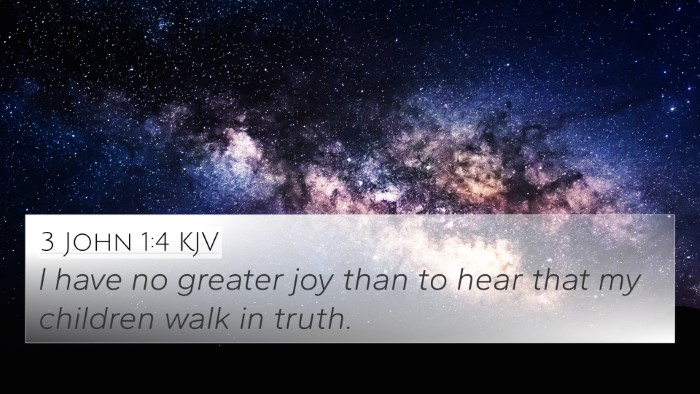Understanding Proverbs 17:21
Verse: "He who begets a scoffer does so to his sorrow, And the father of a fool has no joy."
Meaning and Interpretation
Proverbs 17:21 addresses the deep emotional and spiritual impact that raising a child to be a scoffer or a fool can have on a parent. The verse highlights the consequences of parenting styles and emphasizes the importance of nurturing wisdom and virtue in our children.
Insights from Public Domain Commentaries
-
Matthew Henry:
Henry draws attention to the emotional ramifications of raising a scoffer. He explains that a scoffer is not simply a person who mocks, but one who possesses a contempt for wisdom and virtue. The text suggests that parents who fail to correct foolishness within their children may experience deep sorrow, reflecting the weight of responsibility that comes with parenting.
-
Albert Barnes:
Barnes provides a thorough analysis of the term "scoffer," indicating that such individuals often hold a position of disdain towards godly wisdom and moral instruction. Therefore, he warns parents to be vigilant in guiding their children away from negative influences that encourage mockery and disrespect, shaping a child's heart towards wisdom instead.
-
Adam Clarke:
Clarke emphasizes the ‘fool’ aspect of this verse, indicating that a father of a fool experiences no joy because the outcome of folly is destructive, both to the individual and the family unit. He proposes that proper discipline and guidance are essential to avoid this sorrow, stressing the principle of reaping what one sows in parenting.
Thematic Connections in Scripture
This verse ties into broader biblical themes regarding wisdom and folly, emphasizing the importance of parental influence. The following cross-references underscore these themes:
- Proverbs 1:7: "The fear of the Lord is the beginning of knowledge, But fools despise wisdom and instruction."
- Proverbs 22:6: "Train up a child in the way he should go; Even when he is old he will not depart from it."
- Proverbs 29:15: "The rod of correction imparts wisdom, but a child left undisciplined disgraces its mother."
- Ephesians 6:4: "Fathers, do not exasperate your children; instead, bring them up in the training and instruction of the Lord."
- Colossians 3:21: "Fathers, do not embitter your children, or they will become discouraged."
- Proverbs 13:24: "Whoever spares the rod hates their children, but the one who loves their children is careful to discipline them."
- Deuteronomy 6:6-7: "These commandments that I give you today are to be on your hearts. Impress them on your children..."
Application and Reflection
As believers, it's crucial to understand the implications of Proverbs 17:21 in our own lives. We are called to nurture wisdom in our children. Here are several principles derived from this verse and the related references:
- Intentional Parenting: Engage actively in the moral and spiritual development of your children.
- Discipline and Guidance: Implement appropriate discipline as a form of love and care.
- Setting an Example: Model the values you wish to instill in your children, demonstrating wise behavior in your life.
- Encouraging Respect for Wisdom: Help children to appreciate the value of wisdom and to understand the folly of mocking or scorning.
Conclusion
Proverbs 17:21 serves as a powerful reminder of the impact of parenting on children. By cultivating an environment that encourages wisdom, we help ensure that our children will not become scoffers or fools, minimizing the sorrow that such outcomes can bring. Throughout Scripture, the theme of intentional guidance and discipline emerges, urging parents to take their roles seriously in the eyes of God.
Additional Resources
For those looking to deepen their understanding of Biblical principles through comparative analysis, consider utilizing a Bible concordance or a cross-reference Bible study guide. These tools can aid in exploring connections between Bible verses and enhancing one's study of the Scriptures.

